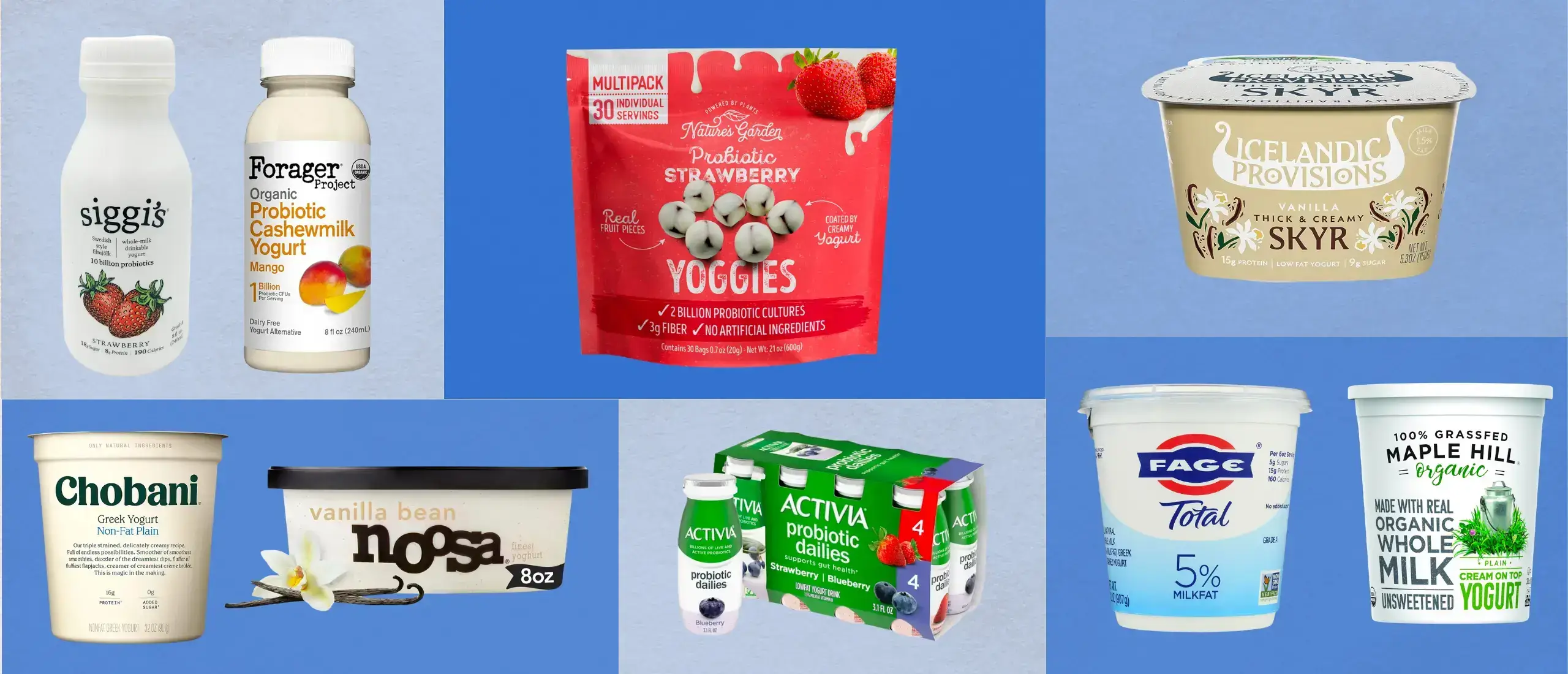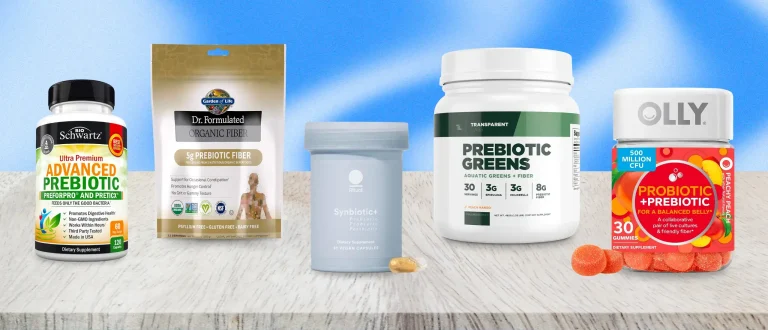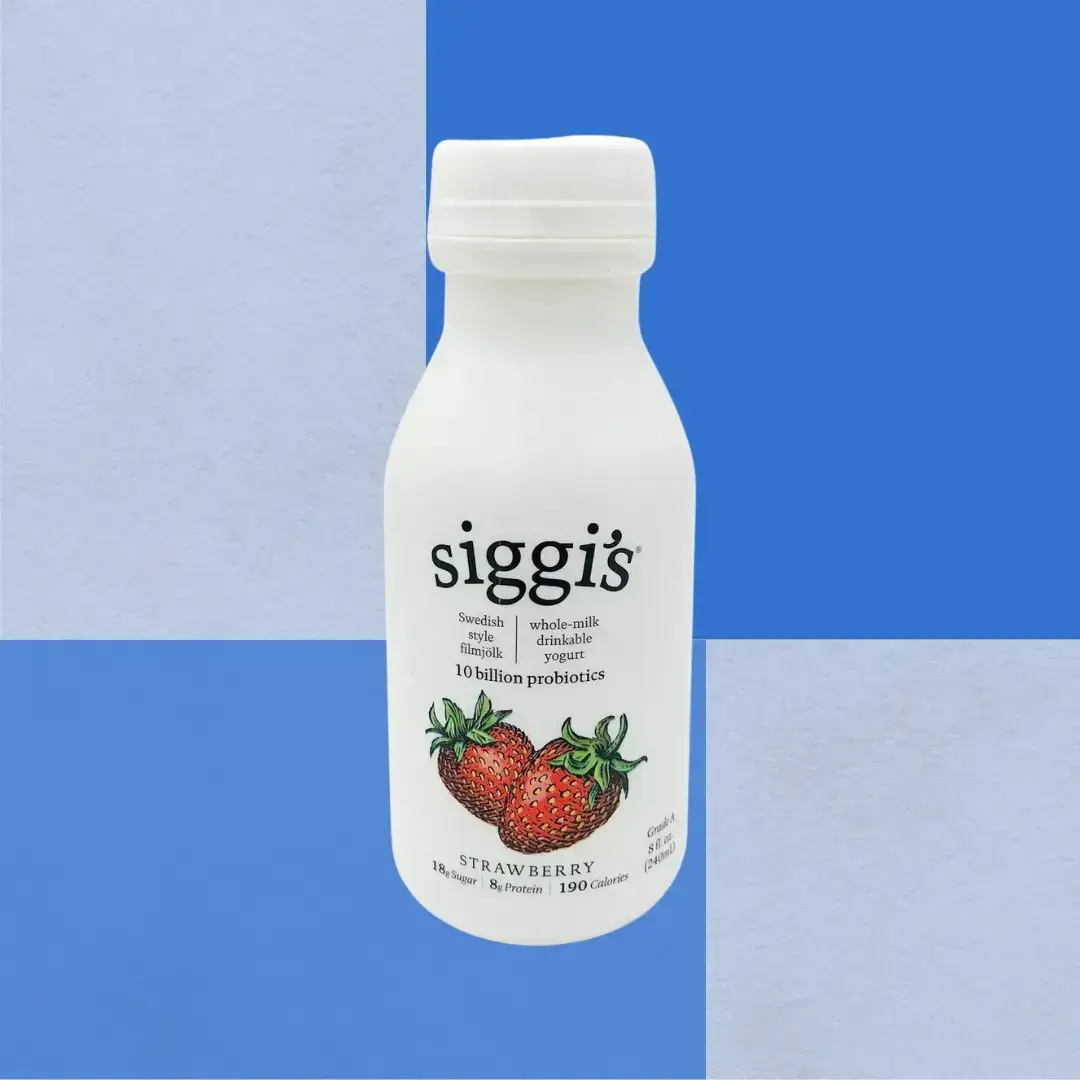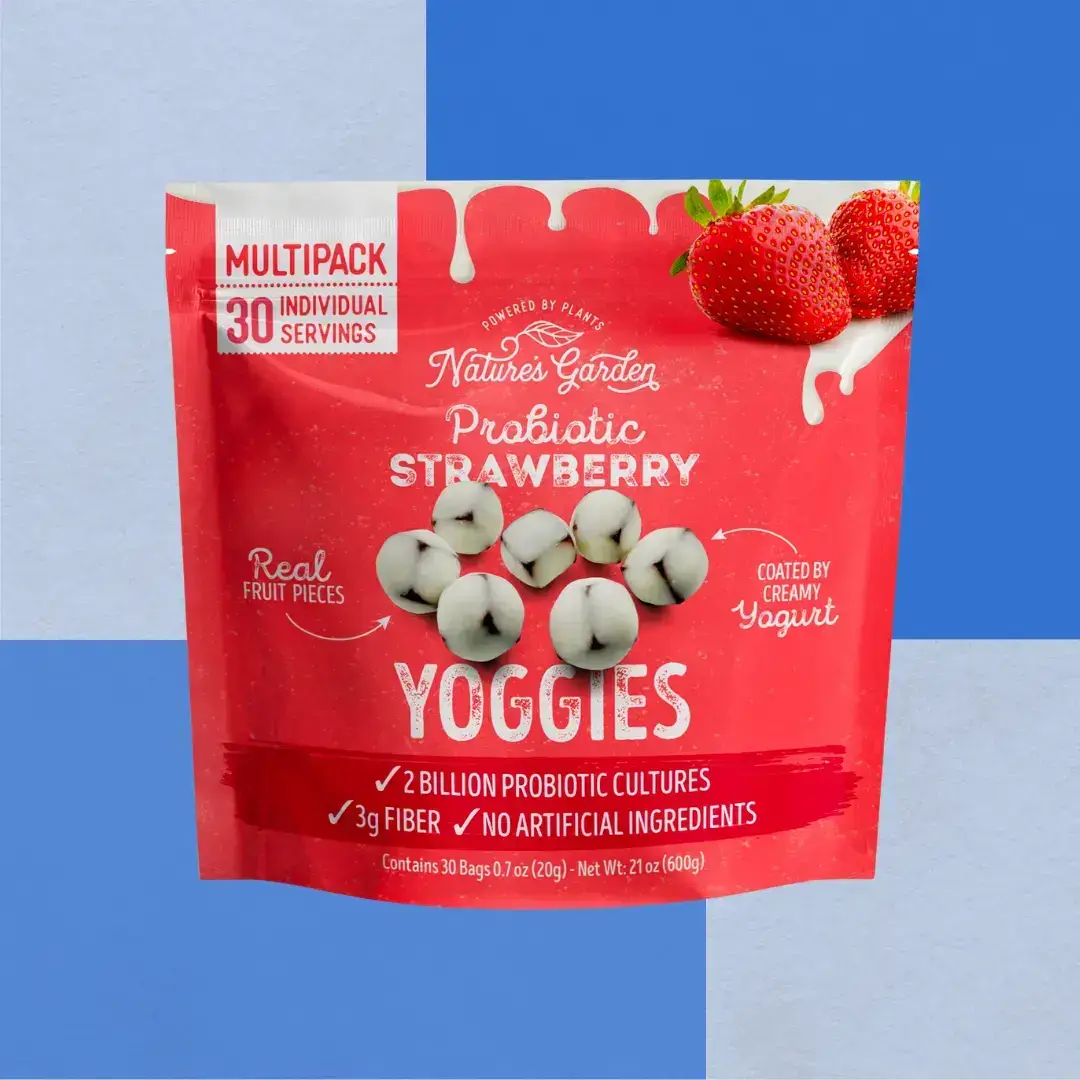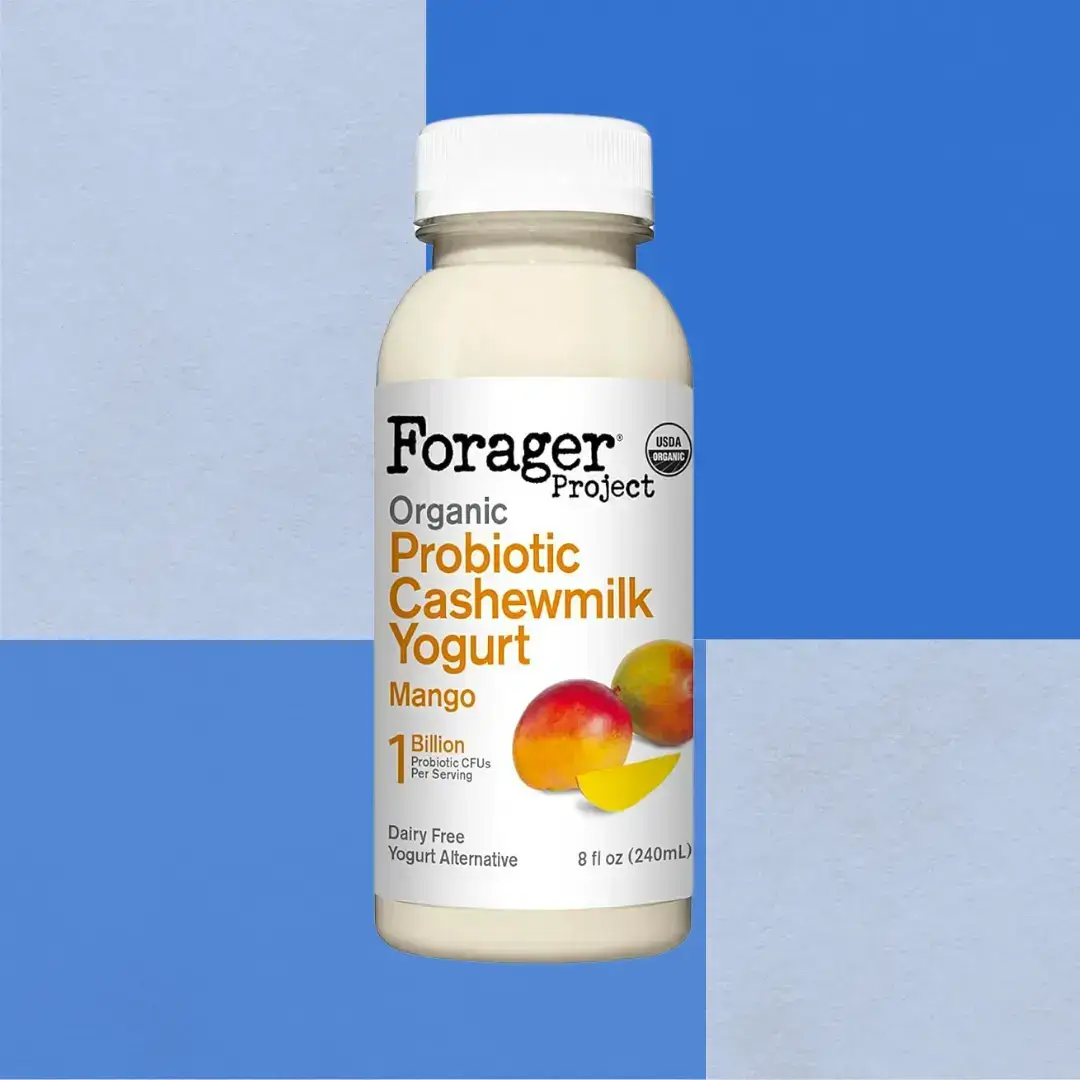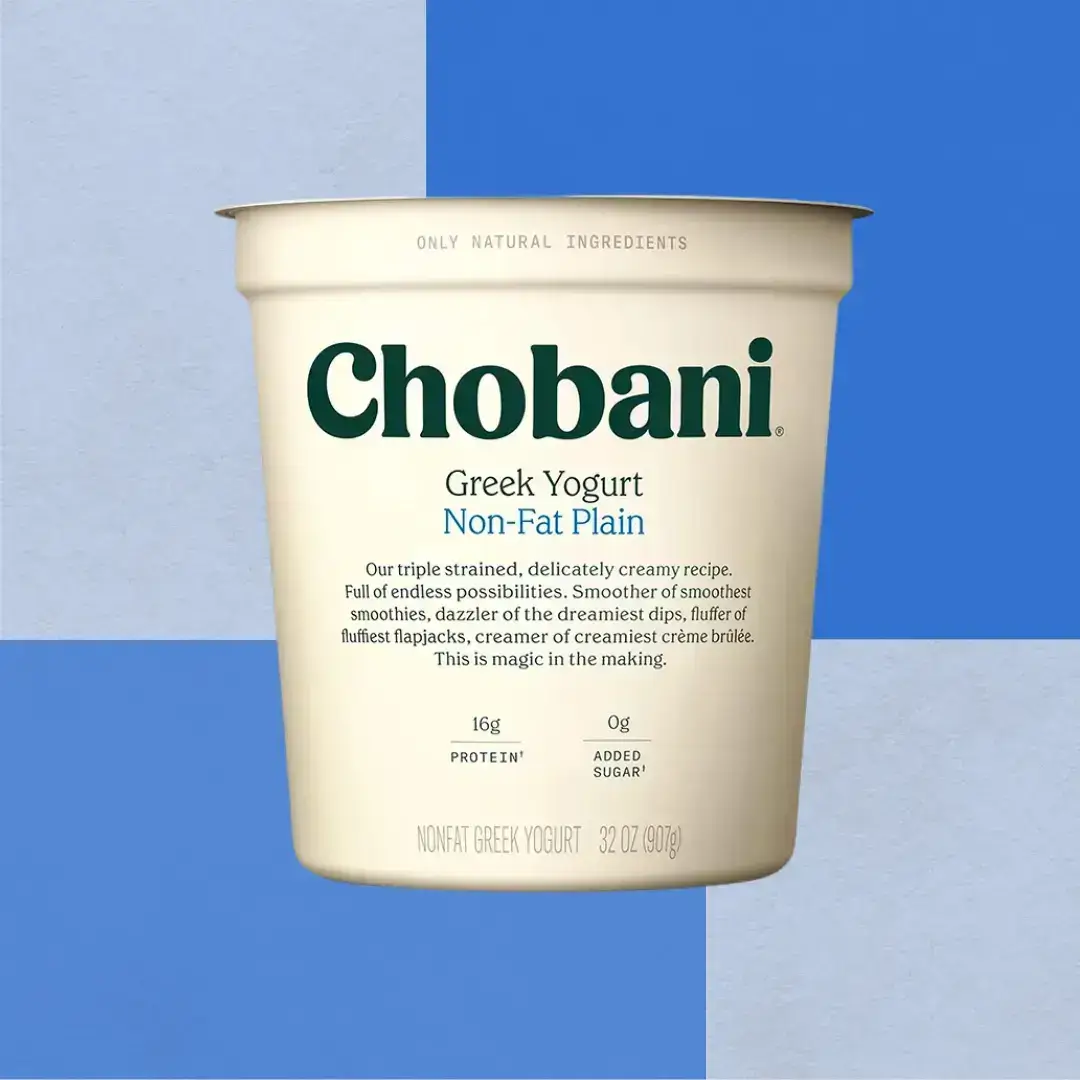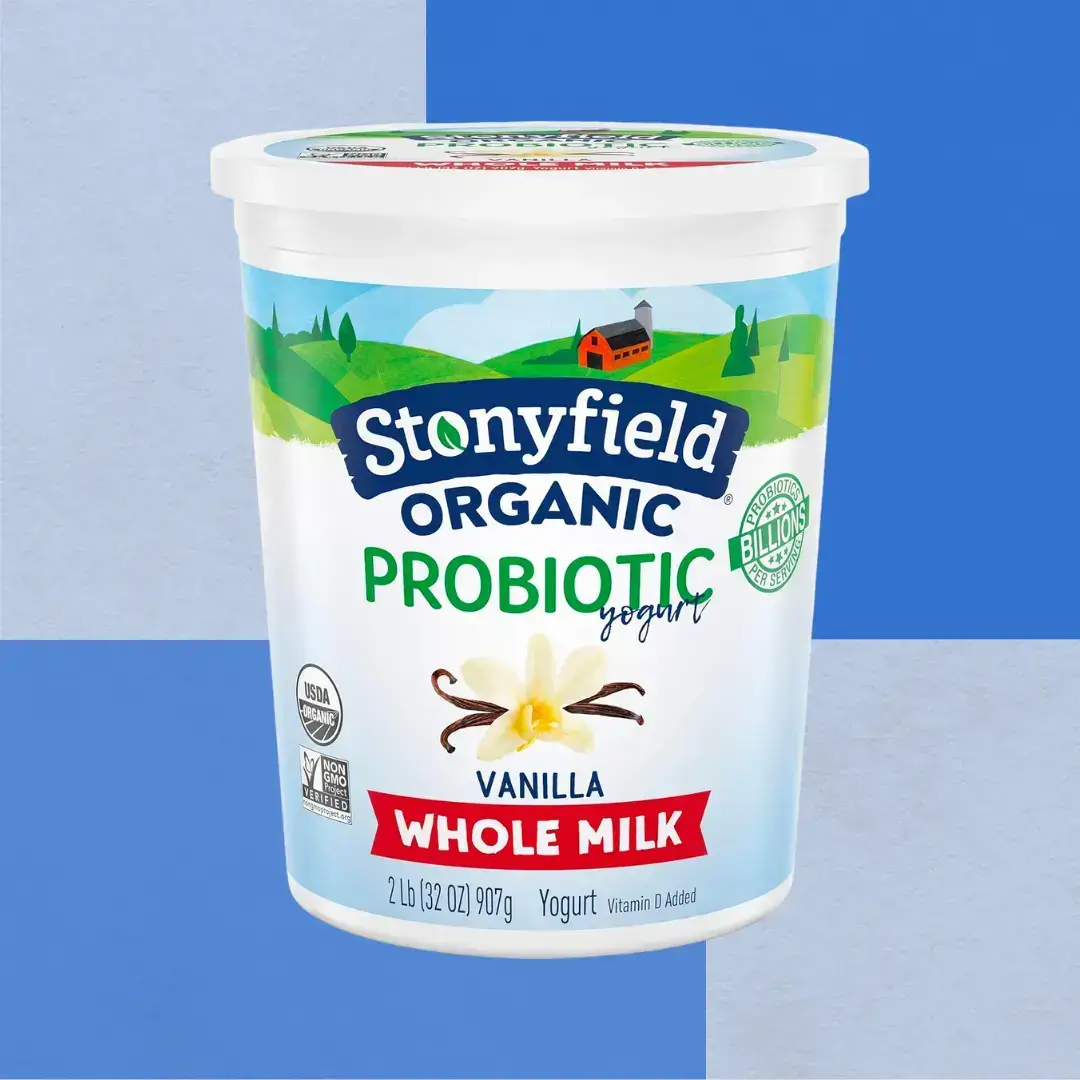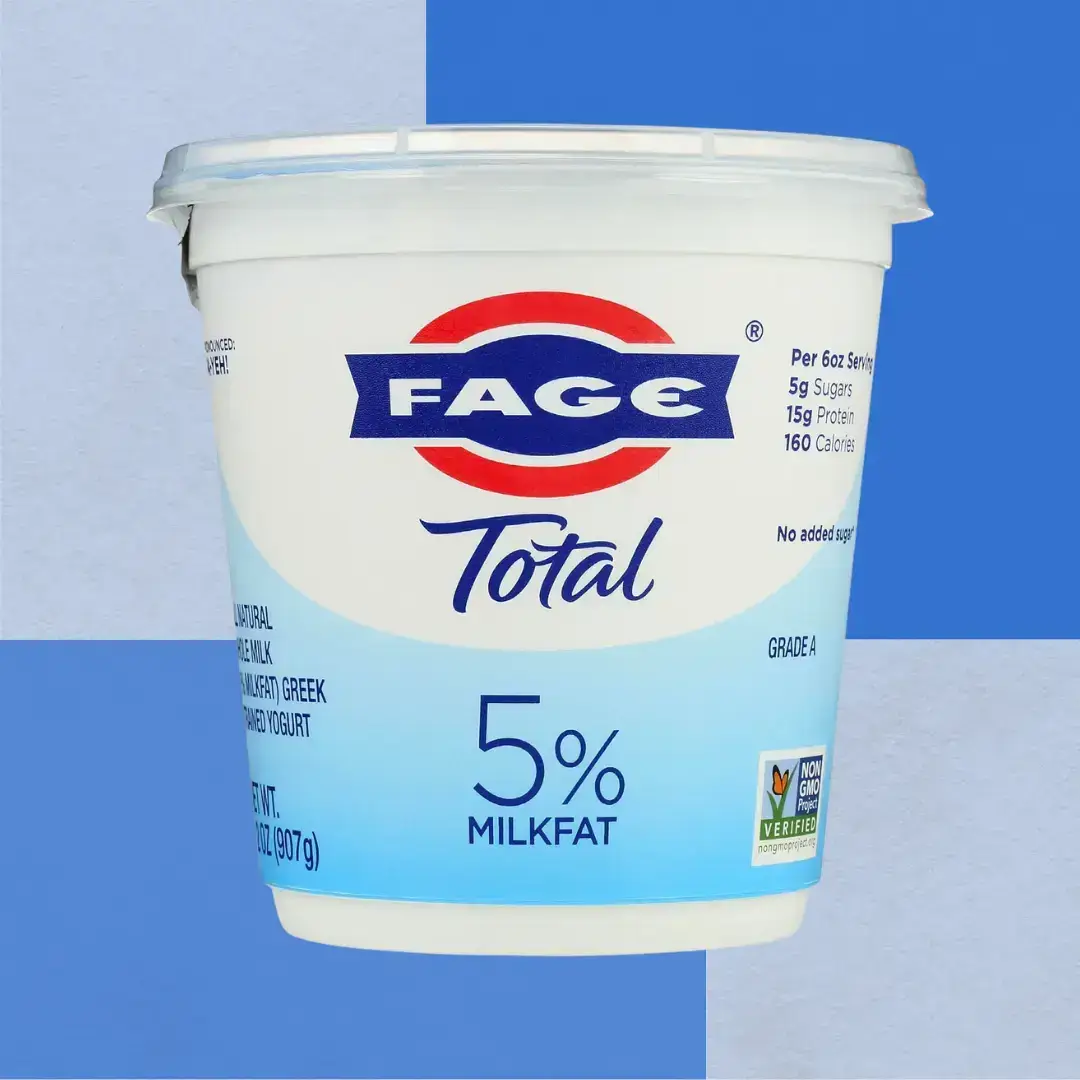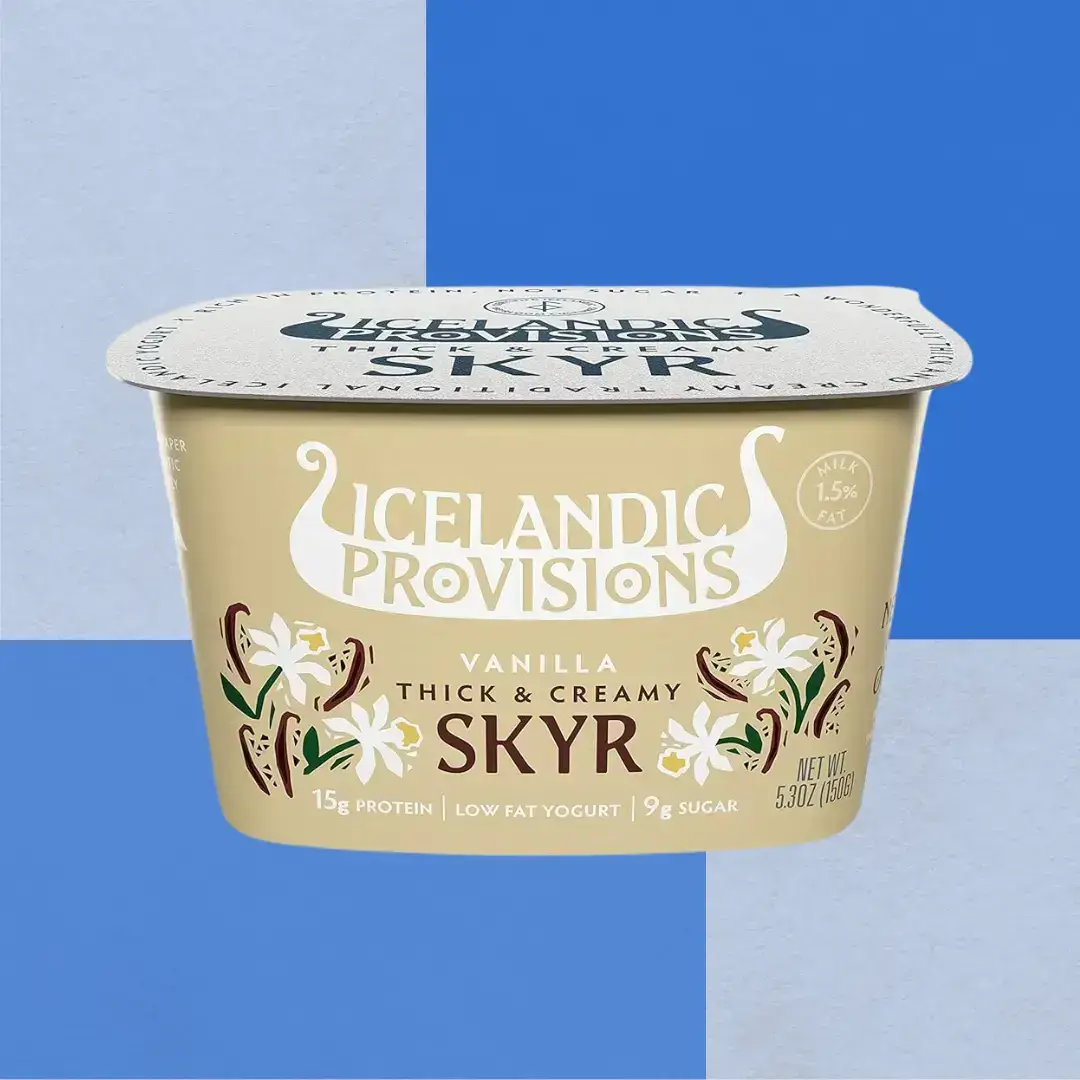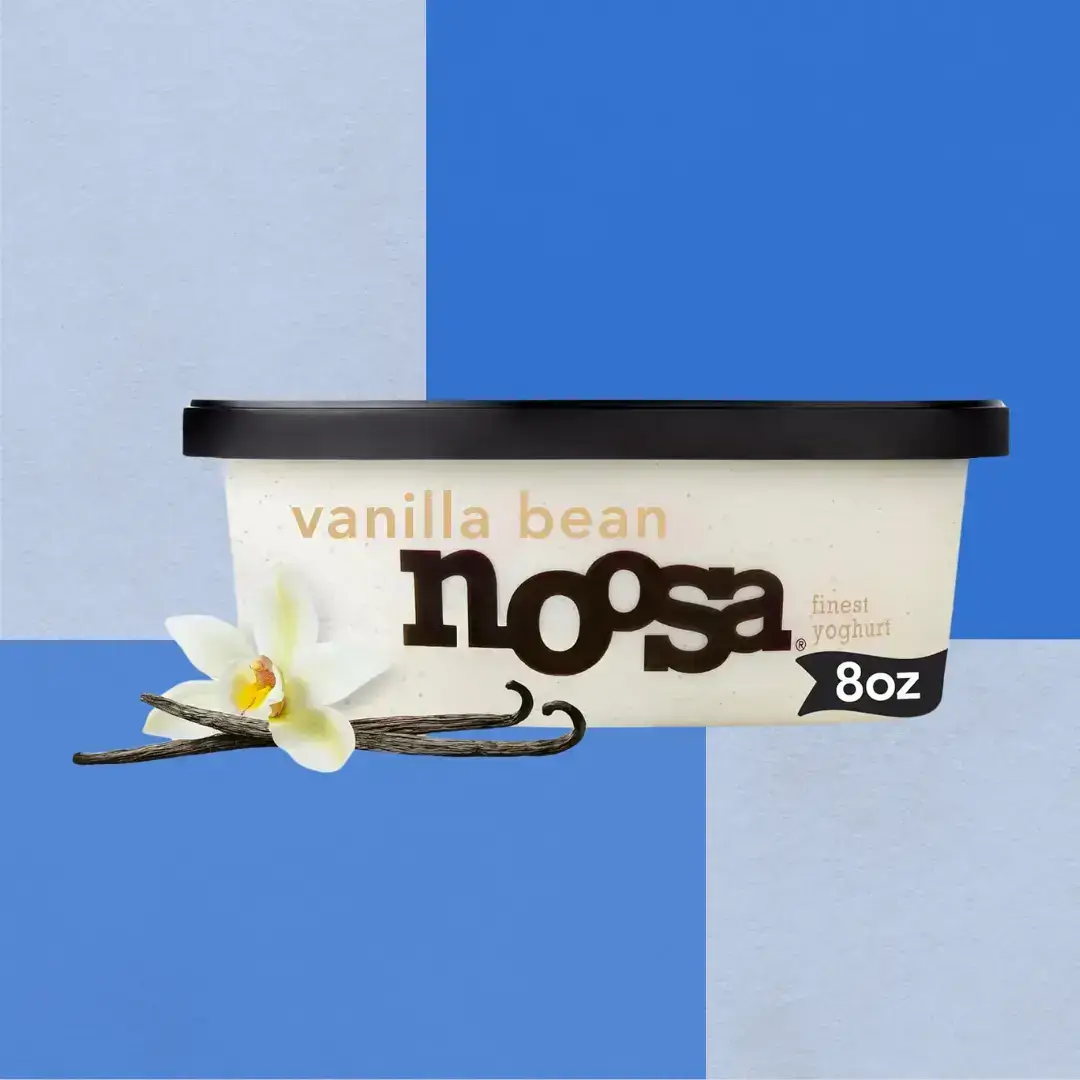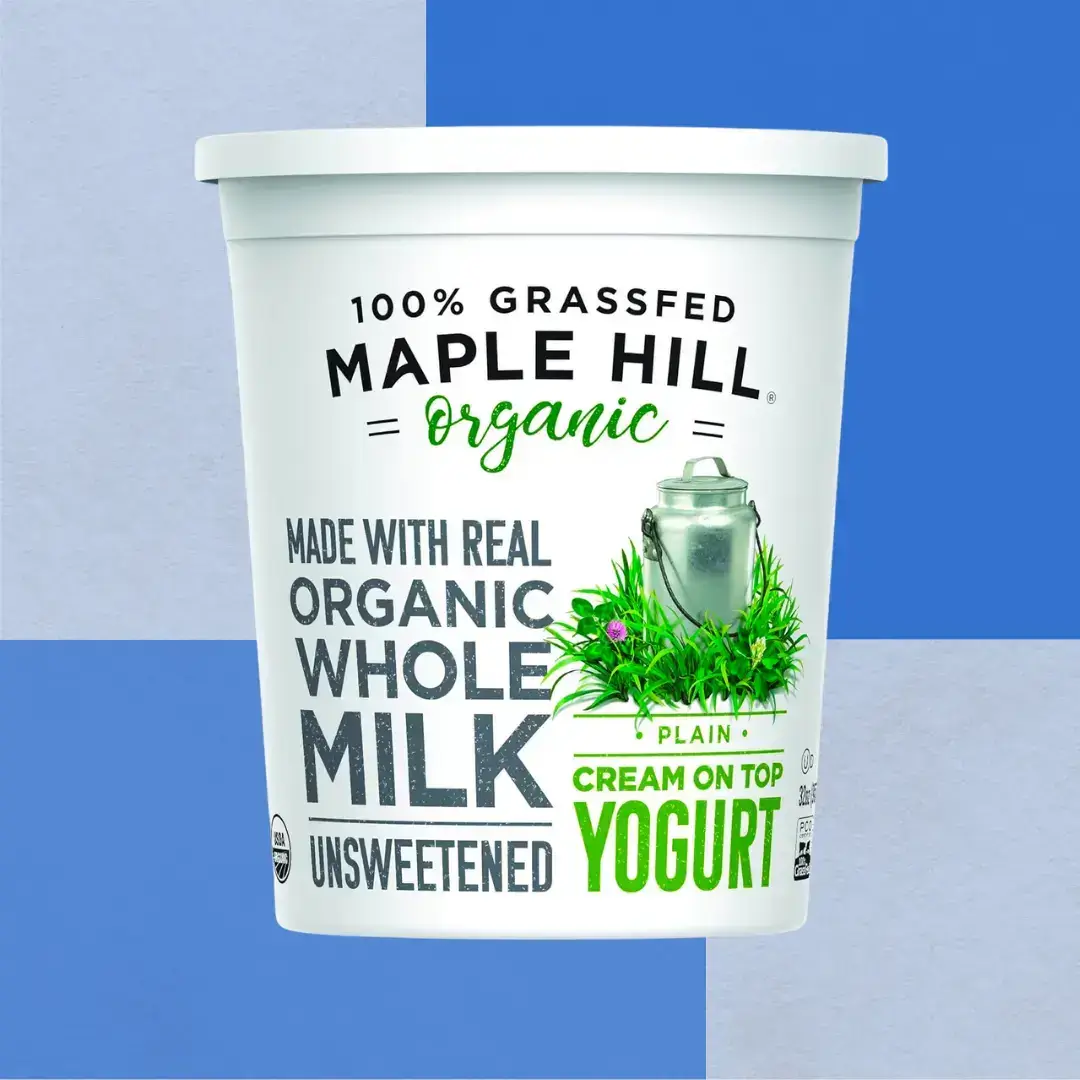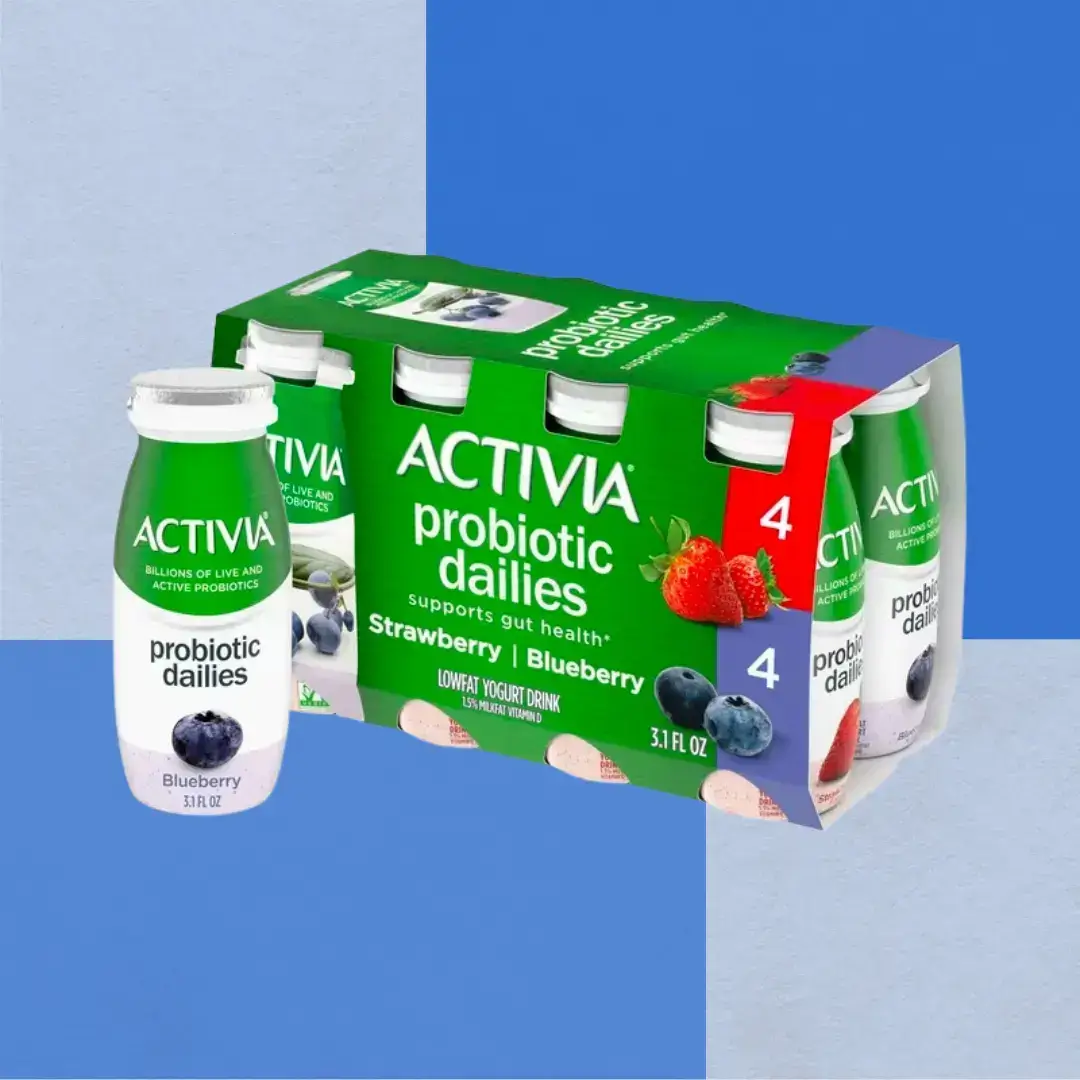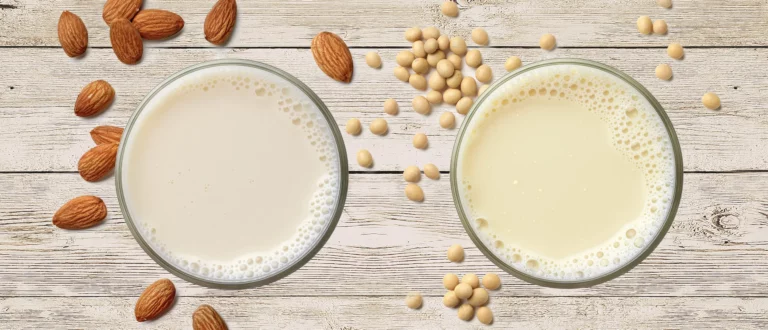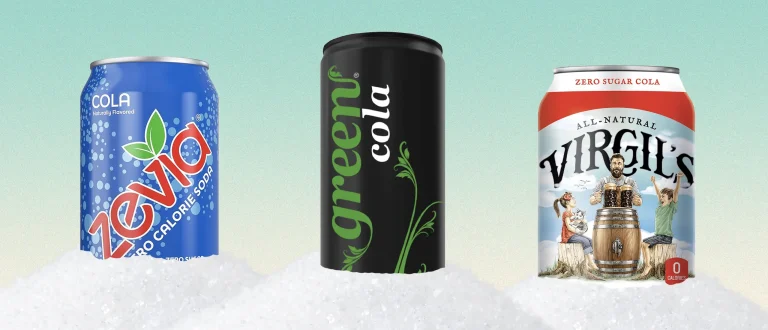Fast Facts
- Probiotic yogurts contain healthy bacteria that can support immune and digestive function.
- When shopping for probiotic yogurts, ensure they contain live and active cultures for the best benefits.
- Not all yogurts are probiotics, so read the label before purchasing.
Our product recommendations are selected by editors, tested first-hand, or expert-approved. We may earn a commission through links on our site.
Lately, people have become extremely interested in finding ways to improve their gut or digestive health. Visit any social media platform, and you’ll see a nutritionist or influencer sharing their favorite foods and drinks for gut health like overnight oats, Kombucha, yogurt, berries, olive oil, and so on. The advice is designed to remedy signs of poor gut health in people who may have a shaky microbiome, and better a person’s overall health—and people are eating that up (no pun intended).
Probiotic yogurt is a popular food many consume to improve their gut health. We’re all familiar with yogurt and may regularly consume it. While eating yogurt already has some well-known benefits, does switching to probiotic yogurt impact someone’s digestive health?
Here’s what we found out about this “gut-friendly” yogurt.
About the Experts
Lena Bakovic, RDN, CNSC, a registered dietitian nutritionist at Top Nutrition Coaching with expertise in gut health.
Yelena Wheeler, MPH, a registered dietitian nutritionist and health writer for the National Coalition on Health Care (NCHC). She has more than a decade of experience.
What Does Probiotic Yogurt Do?
“In simple terms, probiotics are good or beneficial bacteria contained within certain food products and probiotic supplements commonly in the form of capsules or tablets,” says Lena Bakovic, RDN, CNSC, a registered dietitian nutritionist at Top Nutrition Coaching.
Probiotics can be found in yogurt (of course) but also in sourdough bread, most commercial pickles, and other fermented foods. (1)
According to Yelena Wheeler, MPH, a registered dietitian nutritionist and health writer for the National Coalition on Health Care (NCHC), probiotic yogurts are “yogurts that contain live and active cultures of bacteria.”
Probiotic yogurts can be beneficial for your health, as they are a source of the following nutrients: (2)
- Calcium
- Phosphorus
- Potassium
- Vitamin A
- Vitamin B2
- Vitamin B12
- Proteins
- Fatty acids
Eating probiotic yogurts may pose several health benefits, such as: (3)
- Maintaining the balance of healthy bacteria in the digestive system
- Boosting the immune system
- Reducing the length and severity of sickness
- Reducing unpleasant digestive problems, including diarrhea, intestinal pain, and bloating
Are All Yogurts Probiotic?
“No, there are yogurts that are heat treated, which destroys live bacteria and therefore would not contain probiotics,” Wheeler says.
Several types of yogurt are available, from plant-based to whole milk, so it’s crucial to ensure you’re getting the right one.
“It’s important to check the label on the yogurt packaging to help identify whether live or active bacterial cultures are present,” Bakovic says.
Aside from yogurt labeled “probiotic,” you can also look at a yogurt’s colony forming units, or CFUs, to determine if a yogurt has probiotics.
CFUs are the number of live bacteria per gram when the yogurt was manufactured. Typically, yogurt can have about 1,000,000 CFUs, the minimum amount required for the product to be labeled “Live and Active Cultures.” (4)
Some common live and active cultures you might find in probiotic yogurt include: (5)
Navigating gut health trends can be overwhelming for non-health fanatics. If you’re unsure where to start with probiotic yogurts, don’t worry—we’ve compiled a list of the best ones to support your digestive health.
- Lactobacillus acidophilus
- Lactobacillus rhamnosus GG
- Saccharomyces boulardii
- Bifidobacterium bifidum
- Bacillus coagulans
Gut Health 101
The Best Probiotic Yogurts on the Market
Siggi's Whole Milk Yogurt
A recommendation from both of our experts, this five-ingredient whole milk yogurt is available in the flavors Strawberry, Vanilla, and Blueberry. You can drink it as part of your breakfast or as a quick snack during the day. The drinkable yogurt is all-natural, non-GMO, and contains no artificial sweeteners, high-fructose corn syrup, or preservatives. It has 10 billion CFUs, so you’ll get enough probiotics in this yogurt. Also, Siggi’s milk is made from farms that don’t use growth hormones.
- 5 live and active cultures
- 18g of sugar per bottle
- 190 calories per bottle
Nature's Garden Probiotic Strawberry Yoggies
If you don’t like drinking yogurt or eating yogurt by itself, try these yogurt bites. These yogurt-covered strawberries contain 3 grams of fiber, 2 billion CFUs, and are made of fresh, natural fruit. If you need to eat on the go, these yogurt bites come in small, individual snack packs you can easily fit in a lunch box or backpack. You’ll receive 30 individual servings in this multipack of probiotic yogurt.
- 1 live and active culture
- 11g of sugar per individual snack pack
- 90 calories per individual snack pack
Forager Project Organic Probiotic Cashewmilk Yogurt
If you’re not fond of whole milk, Forager Project offers drinkable probiotic yogurt with cashew milk. Offered in individual 8- or 28-fluid-ounce bottles, you can choose from flavors like Mango, Blueberry, and Strawberry. The drink is Certified USDA Organic, gluten-free, soy-free, gum-free, and vegan, and contains 1 billion CFUs. Those allergic to tree nuts should avoid this one since it contains cashews.
- 9 live and active cultures
- 12g of sugar per bottle
- 150 calories per bottle
Chobani Non-Fat Plain Greek Yogurt
Chobani’s plain Greek yogurt is a popular yogurt brand recommended by Wheeler. The yogurt is gluten-free, Kosher, non-GMO, non-fat, and vegetarian. It has a thick, creamy consistency and contains several live and active cultures for your probiotic needs. You can eat this probiotic yogurt by itself or use it as an ingredient for various recipes.
- 6 live and active cultures
- 4g of sugar per serving
- 90 calories per serving
Stonyfield Organic Probiotic Yogurt
Boost your immune and digestive health with Stonyfield’s whole milk probiotic yogurt. Available in a vanilla flavor, this 32-ounce container of yogurt has live and active cultures and just six ingredients. It is certified USDA Organic, non-GMO, Kosher, 99% lactose-free, and gluten-free.
- 6 live and active cultures
- 17g of sugar per serving
- 150 calories per serving
Fage Total Greek Yogurt 5%
Fage’s Greek yogurt adds probiotics to your diet and can be a good source of protein and calcium. The Greek yogurt is all-natural, strained, and contains Grade A pasteurized milk and cream. This probiotic yogurt is gluten-free, non-GMO Project Verified, and vegetarian.
- 5 live and active cultures
- 5g of sugar per serving
- 160 calories per serving
Icelandic Provisions Traditional Skyr Yogurt
Bakovic recommends Icelandic probiotic yogurts for their probiotics and creamy, smooth texture. This brand makes the yogurt with the original Icelandic recipe from Icelandic Skyr culture. By the way, Skyr is just a thick, creamy Icelandic yogurt. The yogurt has several flavors such as Vanilla, Strawberry & Lingonberry, Key Lime, and many more. It contains no artificial flavors, sweeteners, or preservatives.
- 3 live and active cultures
- 10g of sugar per serving
- 130 calories per serving
Noosa Vanilla Bean Yoghurt
This probiotic yogurt contains whole milk, giving it a tart yet sweet taste. It has high-quality ingredients, such as Grade A whole milk, cane sugar, Kosher gelatin, and pectin. It also contains 11 grams of protein to support gut health. The yogurt has several tasty flavors, including Vanilla, Lemon, Coconut, and Strawberry.
- Live and active cultures (exact number unknown)
- 32g of sugar per serving
- 280 calories per serving
Maple Hill Organic Cream on Top Yogurt
If you’re looking for organic whole-milk yogurt, Maple Hill may be your best option. The brand is the country’s first 100% grass-fed organic milkshed. The probiotic yogurt contains organic, non-homogenized whole milk. It has a tart-like taste with a layer of cream that you can scoop off or stir into the yogurt. It is USDA Organic, Kosher, non-GMO, and contains no toxic pesticides, added hormones, artificial flavors, or additives.
- 3 live and active cultures
- 11g of sugar
- 150 calories
Activia Probiotic Dailies
A low-fat probiotic yogurt to consider is Activia’s Probiotic Dallies. Available in an 8-count of 3.1-fluid-ounce bottles, they contain billions of CFUs. You can choose from flavors like Blueberry, Strawberry, and Vanilla or get a variety of flavors. It is non-GMO, gluten- and soy-free, contains 4 grams of protein, and is made with real fruit.
- 5 live and active cultures
- 10g of sugar per bottle
- 70 calories per bottle

